There are many wrecks and their contents represented in this museum--Greek, Hellenistic, Roman, Byzantine, and later--but it is the 14th century
BC late Bronze Age wreck, the Uluburun, off the city of Kas, that must take pride of place,
anywhere. Most matters of antiquity, especially deeper antiquity, are mostly stone assemblages and occasional grave goods. With the Uluburun shipwreck, there were
18,000 cataloged items, "every-day items," an archaeological treasure-trove that has caused a complete reconsideration of the Bronze Age and especially commerce and transportation at that time. We have seen older things than this--in France and the British Isles--but nothing we have seen compares with Uluburun. And, I should note, most of these archaeological recoveries were directed by the American, George Bass, of Pennsylvania U and Texas A&M, who is recognized at Bodrum and everywhere else as the "father" of marine archaeology.
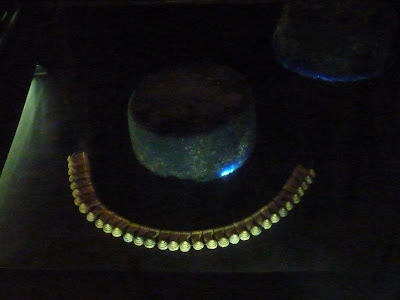 |
Mycenaen glass beads and ingot, 14th century BC
|
 |
Glass ingot
|
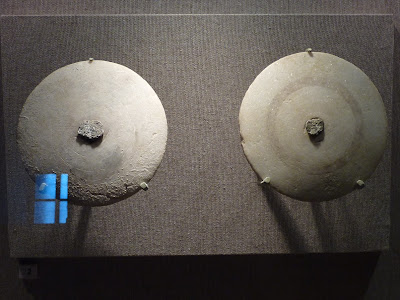 |
A Bronze Age ship's "eyes"
|
 |
Entrance to the Uluburun hall; with the anti-"evil eye" one
sees everywhere in Turkey
|
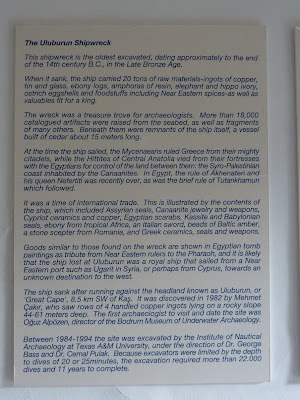 |
Enlarge and READ THIS
|
 |
Bronze Age shaving kit, mirror and razor; where's the Burma Shave?
|
 |
Life-size model of ship, cargo, and wreckage below
|
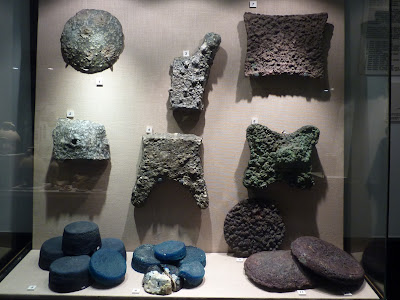 |
Metal and glass ingots
|
 |
Cybele, Earth Mother (later replaced by Artemis, Diana,
Mary)
|
 |
Weapons, pottery from Uluburun
|
 |
Ivory cosmetic boxes
|
 |
There are only seven tin items known from the Bronze Age
--here are three of them; plus some ostrich eggs
|
 |
Of ten scarabs found, this gold one bears the
name of Nefertiti
|
 |
More gold jewelry and other stuff
|
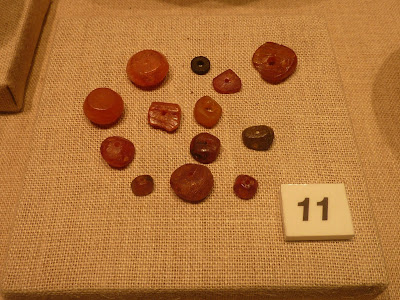 |
Amber; from the Baltic!!!
|
 |
And, truly, best of all, a wax writing tablet--with reconstruction
below--sort of a 1500BC etch-a-sketch; incredible...
|
















No comments:
Post a Comment